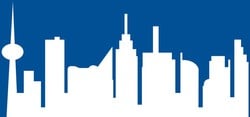Big Cities
Have city mayors whose popularity rivals that of rock ’n’ roll stars become a thing of the past? Perhaps the time is not yet over for heroes such as Enrique Peñalosa, former mayor of Bogotá. However, the fact that decisive leaders are able to radically improve the cities they oversee does not mean that these places are likely to become more prominent at the international level. In reality, it is the success at the country level that puts a metropolis on the map, and a mayor’s objective is just to make sure that matters do not get worse.
BRICS Business Magazine looked at the latest Mercer Quality of Living Survey to learn more about the cities in the developing world that foreign travelers find most convenient and popular. Among some of the most important factors that affected the final score were personal safety, efficiency of law enforcement, and international contacts. All in all 230 cities took part in the study with Vienna (Austria), Zurich (Switzerland), Auckland (New Zealand), Munich (Germany) and Vancouver (Canada) rounding out the top five. N’Djamena (Chad), Khartoum (Sudan), Port-au-Prince (Haiti), Bangui (Central African Republic), and Baghdad (Iraq) fell at the bottom of the list.
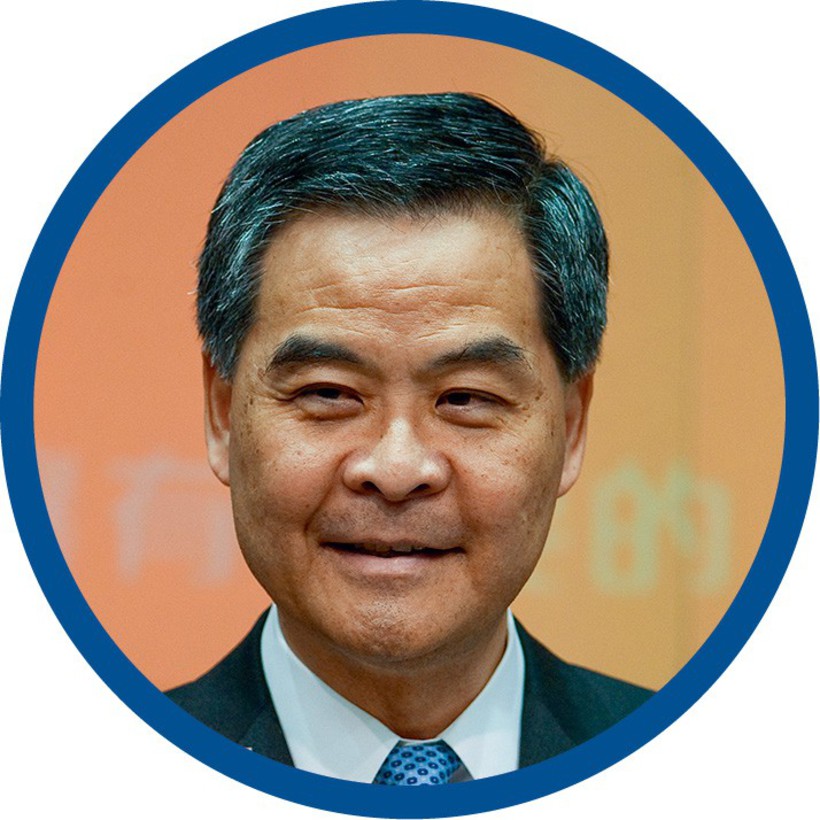
CY Leung
Hong Kong
A Wolf in a Wolf’s Clothes
In many ways, Mayor CY Leung won his election campaign of March 2012 because of a string of scandals that discredited his chief opponent, Henry Tang. The timely discovery of architectural alterations in Tang’s home that added a 200 square meter cellar, as well as other scandals, forced the electoral college to award the victory to Leung. However, he has never become a popular politician. The mayor seems to spend most of his energy and political clout trying to hold on to his position rather than ensuring best governance.
CY Leung studied building surveying at the Hong Kong Polytechnic University. He graduated in 1974 and went on to study at Bristol Polytechnic (now the University of the West of England). He moved on to real estate and headed up the Hong Kong office of Jones Lang Wootton, a development company, until he finally set up his own building surveying company. In the mid-1990s, the future mayor decided to concentrate on his political career and switched his focus to urban infrastructure. He personally designed many residential complexes in Hong Kong.
Hong Kong is a convenient city with an excellent transportation system that operates round-the-clock. It is also a global shopping mecca and a stock market hub, but Mr. Leung’s opponents are still not satisfied. He is widely blamed for pro-Beijing policies that favor the northern Chinese dialect spoken in Beijing (Hong Kong’s preferred language is Cantonese).
Large-scale protests broke out when he took over as city mayor. The loudest protests began in October 2014 and lasted nearly three months; people took to the streets demanding direct popular elections and Leung’s resignation. Tens of thousands of ‘Occupy Central’ supporters blocked the streets, and government agencies were completely shut down for several days. But Leung had no interest in tendering his resignation.
During the next election cycle, Hong Kong will elect its mayor from a list of candidates proposed by Beijing. During the Chinese New Year celebrations, Mayor Leung said, “I hope that all people in Hong Kong will take inspiration from the sheep’s character and pull together in an accommodating manner to work for Hong Kong’s future. Sheep are widely seen to be mild and gentle animals living peacefully in groups.” The mayor’s nickname, ‘the Wolf,’ is well known to everyone in Hong Kong. Even his last name sounds like ‘wolf’ in the Cantonese dialect.
I hope that all people in Hong Kong will take inspiration from the sheep’s character and pull together in an accommodating manner to work for Hong Kong’s future. Sheep are widely seen to be mild and gentle animals living peacefully in groups
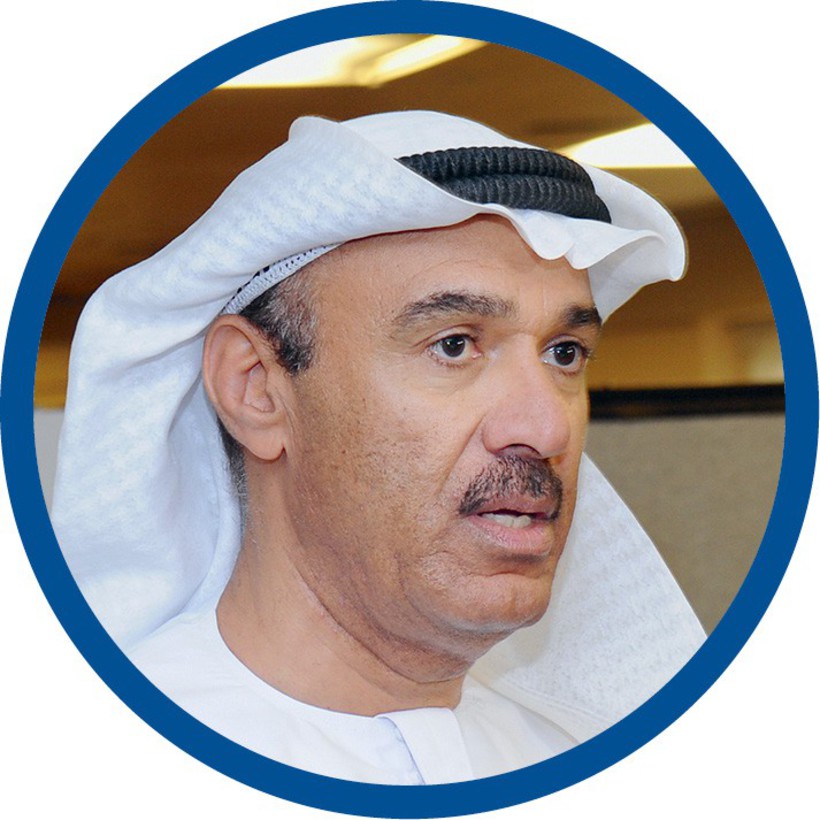
Hussain Nasser Lootah
Dubai
An Arabian Prince
In January 2009, Hussain Lootah was appointed Director General of Dubai Municipality by Mohammed bin Rashid Al Maktoum, who is Prime Minister of the United Arab Emirates and head of the family that has ruled the country since the 1930s. Mr. Lootah is a highly skilled manager (he has occupied various positions in the city administration since 1985) with an American engineering degree. His primary objective as mayor has been to optimize the city’s budget in the face of a growing recession. At the same time, Dubai has continued to pursue large-scale projects – in 2009 alone, the municipality launched construction of a water treatment facility, an Olympic swimming pool, a crèche, and a number of improvements to city parks. The total cost of these projects exceeded $1 billion.
In his efforts to develop the city, Lootah has prioritized the environment (Dubai’s residents even plant trees on rooftops), transportation, and traffic reduction. He also has a personal vendetta against private vehicles; the mayor’s office outlawed cars on certain days of the week, introduced a number of fees for car owners, and requires city officials to use public transportation on a regular basis. The mayor believes that bicycles should become the main means of transportation, which is why Dubai is building kilometers of bicycle lanes, along with parking facilities for two-wheelers near metro stations.
Despite the austerity of these measures, the UAE’s oil revenues make it possible for the Director General to launch extravagant programs as well, such as one in which residents can exchange lost kilograms of bodyweight for gold (one gram of gold per kilogram). This initiative has cost the city nearly 17 kilograms of gold already.
In November 2013, the UAE won the right to host the World Expo in Dubai in 2020, making the city the first in the Middle East to host this event. This honor will likely cost the city more than $8 billion. Dubai authorities are planning to build a new commercial property complex next year called Aladdin City, which will be located next to the famous Burj Khalifa skyscraper. The new facility will comprise six gilded towers resembling magic lamps, all connected by golden walkways. City authorities want this complex to become yet another landmark, and Hussain Lootah has promised to allocate the required funding.
We want more people to use public transport so we are working on building a new city – Desert Rose – which will be a quantum leap in building a sustainable city
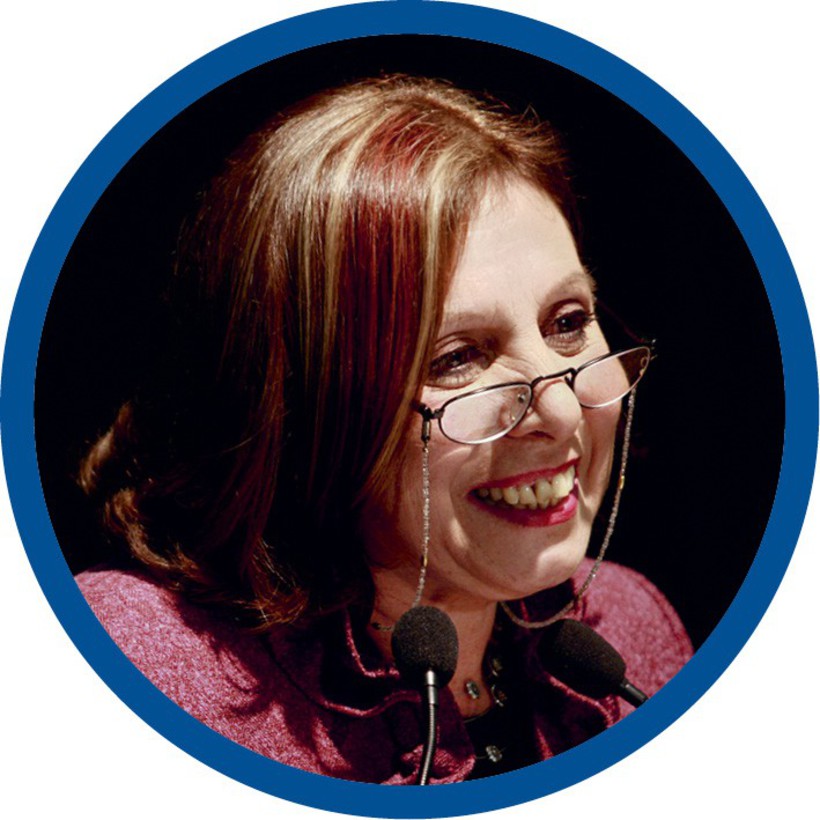
Ana Olivera
Montevideo
The Uruguayan Reformer
Ana Olivera was born in Montevideo in 1953, but her family was exiled to Cuba when Uruguay’s military dictatorship began in 1973. Ms. Olivera and her family later left Cuba for France, where she joined the country’s communist party. After the fall of the dictatorship in 1985, she returned to Uruguay and began working as a high school French teacher.
Her political career began in 1995 when she became the head of the Social Protection Department in the office of the Montevideo mayor. Ten years later, she became Deputy Minister of Social Development, and a member of the Drug Enforcement Council and Public Safety Bureau. In 2010, the President offered her the post of Minister of Social Development, but she opted to run for mayor of the capital on the Communist party ticket.
After winning the election, she launched municipal administration reforms and fought against street pollution. Her pet project was turning Montevideo into a tourist city, and it was thanks to her that the first tourist buses were brought to the city. Today the mayor’s primary focus lies in the development of the resort areas in the northeastern district and the New City, as well as in developing the capital’s business center. She also announced measures to protect the Old City and its architectural landmarks.
“People in the street tend to say pleasant things to me. One hand would be enough to count the number of instances when someone said something nasty to me. It speaks volumes about what is going on in the city and the attitudes of the citizens. I walk around the city a lot, I often take the bus to go to the supermarket or take a stroll around the city center. So it is easy to find me in the city,” she was quoted as saying in Forbes magazine.
It is true – even tourists get to see the mayor, and she never misses an opportunity to hear their opinions about Montevideo. Granted there are some personalities she steers clear of. For instance, in 2013 Ms. Olivera refused to meet Georgy Poltavchenko, the mayor of St. Petersburg (Montevideo’s sister city).
People in the street tend to say pleasant things to me. One hand would be enough to count the number of instances when someone said something nasty to me
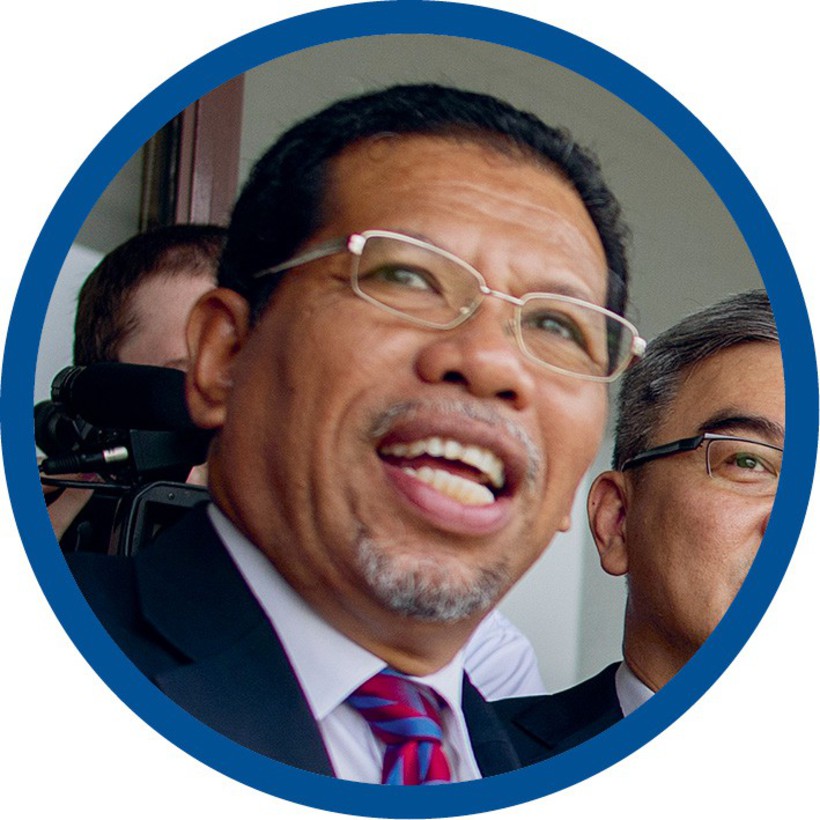
Ahmad Phesal bin Talib
Kuala Lumpur
The Builder of Skyscrapers
Ahmad Phesal bin Talib is one of the most educated mayors of our times. He graduated from the University of Malaysia with a major in Anthropology and Sociology in 1977, and he received his Master’s Degree in Urban and Regional Planning from the University of Wisconsin in the United States in 1984. He later went on to graduate with an MBA from Harvard Business School in Massachusetts.
He began his career in 1977 as a member of the Economic Planning Division in the Prime Minister’s office and went on to occupy various positions in Labuan and Penang. In 2007, he became the Chief Secretary of the Ministry of Federal Territories and Urban Well-being. In July 2012, Mr. bin Talib took over as Kuala Lumpur’s mayor.
The Petronas Twin Towers inspired him to focus his attention on the city’s skyline – he announced this year that a number of high rises are slated to be built that will change Kuala Lumpur’s skyline beyond recognition. The tallest of the ‘Supreme Towers,’ as the mayor likes to call them, will be built in the vicinity of the Petronas Twin Towers and will be more than 60 storeys tall. The mayor explains that their large size is due to the excessive cost of land, but he believes that their construction will not negatively affect the quality of life in the city. According to bin Talib, the buildings are going to be well designed and integrated into the city’s super developed public transportation system. There will also be plenty of open spaces and pedestrian zones, as well as trees and green areas around them.
In 2014, Kuala Lumpur became one of the New7Wonders Cities, according to rankings compiled by the New7Wonders Foundation, a Swiss NGO. This enabled the mayor to pursue his dream of promoting tourism in his city. His efforts helped bring in more tourists from around the globe who wished to see one of the new wonders of the world.
His hobbies include gardening, charity, and reading books about marketing and leadership technologies. Mr. bin Talib likes to travel independently, and to surprise his fellow countrymen with his exotic tastes. He does not eat dishes containing rice, and avoids other foods high in carbohydrates.
Malaysians don’t have to travel far or overseas to experience what we already have in our very own capital city
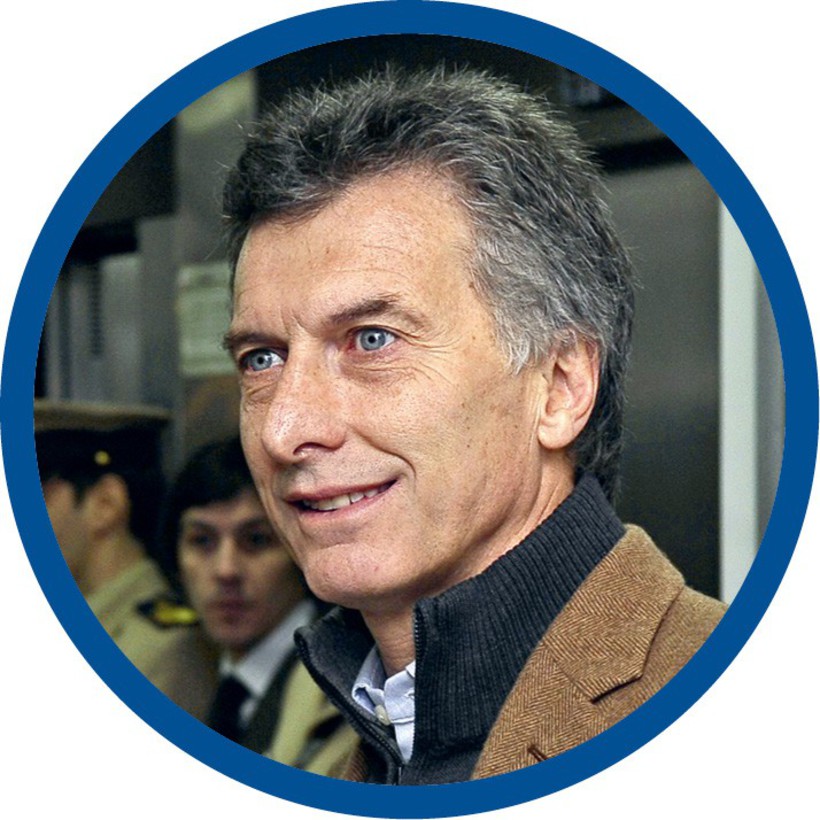
Mauricio Macri
Buenos Aires
The Opposition Mayor
Mauricio Macri is a millionaire, former businessman, and former manager of the famous Boca Juniors football club, who can be spotted amongst the crowds in the streets of Buenos Aires every morning. He is always in a hurry to get to work and start his day as the mayor of one of the largest cities in South America, an office he has held for nearly eight years.
Legend has it that Macri’s father immigrated to Argentina from Italy after WWII. He went on to found a construction company, which rode the wave of an economic boom in Argentina and became quite successful. This afforded Macri Sr. the opportunity to give his son a good education. At the age of 26, Mauricio started working as a manager at his father’s company, and went on to inherit a part of his fortune. The younger Macri later worked at Citibank in the Credit Department, and then set up his own company to produce air conditioning units. Between 1995 and 2007, Macri was the President of Club Atlético Boca Juniors – on his watch, this Argentinian football club became one of the strongest in the world. His political career began in 2003 when he announced his candidacy for the mayoral office in Buenos Aires. Despite losing on his first attempt, he managed to win the nomination four years later.
The Argentinian press consider Macri to be the unofficial head of the opposition. He is a critic of the policies of Argentina’s government, which, according to him, has led the country from one economic crisis to another since 2010. In 2001, Macri was going to run for president, but discarded the idea after failing to secure the requisite support from the opposition parties.
Thanks to the $8 million that Macri made during his career as a businessman, he can afford to forego his salary of $430 per month, which he chooses to donate to a soup kitchen in a favela-style shantytown. One of his main concerns is to reform the municipal waste collection service – thanks to him, nearly half of all city waste is now processed instead of being dumped in a landfill. Voters will remember Macri as a mayor who consistently fought to reduce traffic, gradually increased taxes on private vehicles, and provided free Wi-Fi in the streets and parks of Buenos Aires.
If you want to have a modern city you need to adapt and evolve. Every week cities receive hundreds of citizens that come to look for a job or new experiences or simply to have fun and they all demand quality services
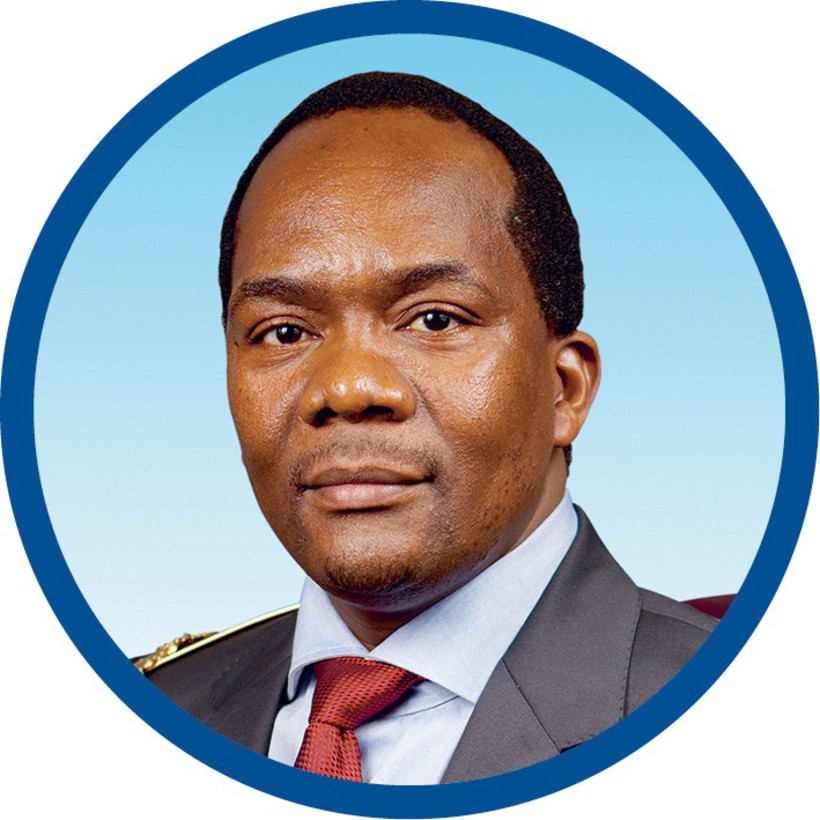
James Nxumalo
Durban
A Poultry Farmer and Communist
James Nxumalo was just elected mayor of Durban, South Africa in February, which hasn’t left him with much time to make a name for himself. However, his latest endeavor follows a career as one of the leaders of the South African Communist Party, as well as various obstacles in early life that he successfully overcame.
Mr. Nxumalo hails from a family of peasants. He got luckier than most of his peers – since his mother was the only bread winner in the family, he had a chance to study. For that he had to walk 10 kilometers every day to get to and from school, according to the mayor’s official bio. Mr. Nxumalo began his political career as a university student in the 1980s when he joined South Africa’s main anti-apartheid organization, the United Democratic Front. In the early 1990s, Mr. Nxumalo joined the South African Communist Party, and started organizing trade unions and campaigning with workers. His stint as a unionist and a politician brought the future mayor to the municipal administration system. He is one of few people to combine his political career with work on a poultry farm.
At 45, he took over as the mayor of Durban. It is the largest municipality in the province of KwaZulu-Natal and commands a budget of $2.4 billion. Nxumalo has declared his primary goal to be the development of infrastructure and the construction of housing. The province that Nxumalo took over is rife with shantytowns and unregistered houses. In order to tackle these problems head on, the new mayor promised to launch a new program to build 16,000 to 18,000 square meters of new housing annually. Another issue important to Mr. Nxumalo is the fight against corruption. “We will be very strict this time. We will not allow councilors to do business with the Municipality,” he proclaimed upon taking office. His first decree as mayor was to forbid municipal councilors from taking part in the commercial activities of private firms.
We will be very strict this time. We will not allow councilors to do business with the Municipality
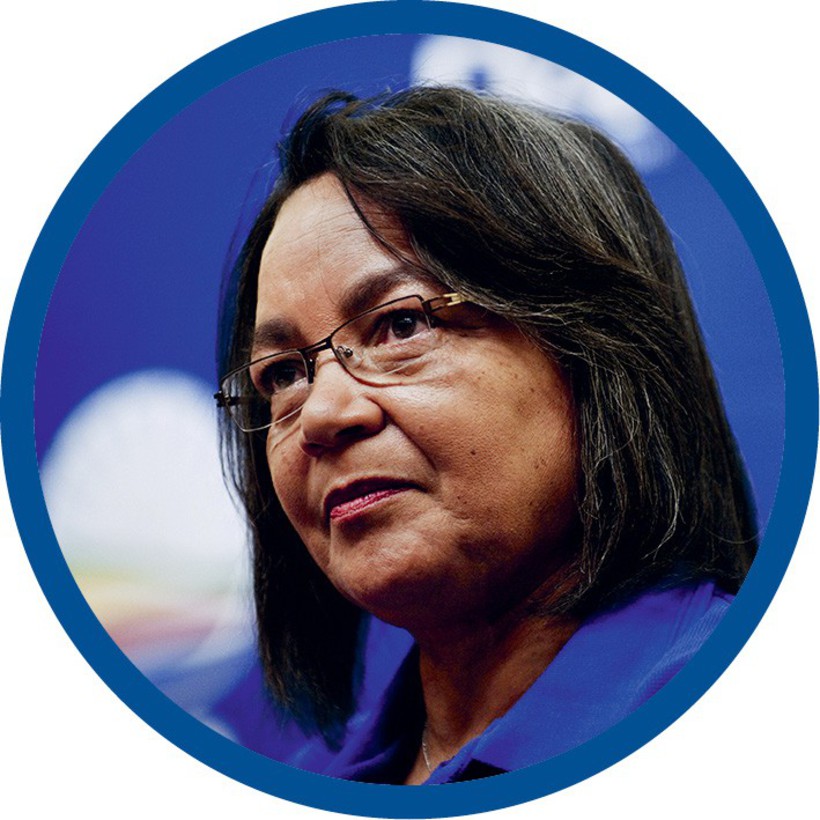
Patricia de Lille
Cape Town
Nelson Mandela’s Comrade-in-Arms
Much like other mayors running capital cities in developing countries, Patricia de Lille is not so much a bureaucrat or an economist as she is a prominent political figure, whose career dates back to the 1980s. But it was completely by accident that she got involved with the Chemical Workers’ Union in South Africa and later worked hand in hand with Nelson Mandela, who at the time had already fallen out of grace with the authorities.
In 1989, Ms. de Lille was elected to the National Executive Council of the All-Africa Movement, and in 1994, she headed up the delegation of democratic parties during the historic negotiations in the lead-up to South Africa’s first democratic elections . Ultimately, Ms. de Lille herself became a Member of Parliament and took over as the chair of its Transport Committee. In the late 2000s, she also headed up a commission tasked to investigate the largest corruption scandal in the history of the country, the so-called ‘Arms Deal.’ The investigation revealed that high-ranking South African public officials had received bribes in exchange for purchasing arms from European companies (primarily British companies) totaling £4 billion. The discovery of evidence led to a criminal prosecution of President Jacob Zuma, who was implicated in the scandal.
Ms. de Lille finds herself running the city at a difficult time. On the one hand, Cape Town is a modern, rapidly evolving metropolis; on the other hand, thousands of residents lack decent housing. A program has been launched to improve the living conditions of the city’s poorest residents, though it has been inefficient due to a lack of funds. The situation has caused massive unrest; in August 2012, hundreds of residents of the city’s poorest districts took to the streets demanding better housing conditions, which some of them had been waiting for since 1993. The protestors cordoned off one of the highways leading to the city and burned a pile of old car tires. The police used water guns and rubber bullets to disperse the crowd and arrested nearly 60 people. Ms. de Lille and the protestors criticized each other for resorting to violence. However, even her opponents admit that the city administration is gradually improving. In February 2015, the Cape Town authorities launched an open data Internet portal where city residents can find information about the municipal administration and its activities. Cape Town is the only city in South Africa that can boast such a portal to date.
We have to ensure that we lead the people of our city to reject racism, to make everyone feel included in this city, and to activate a positive culture of rights in our society
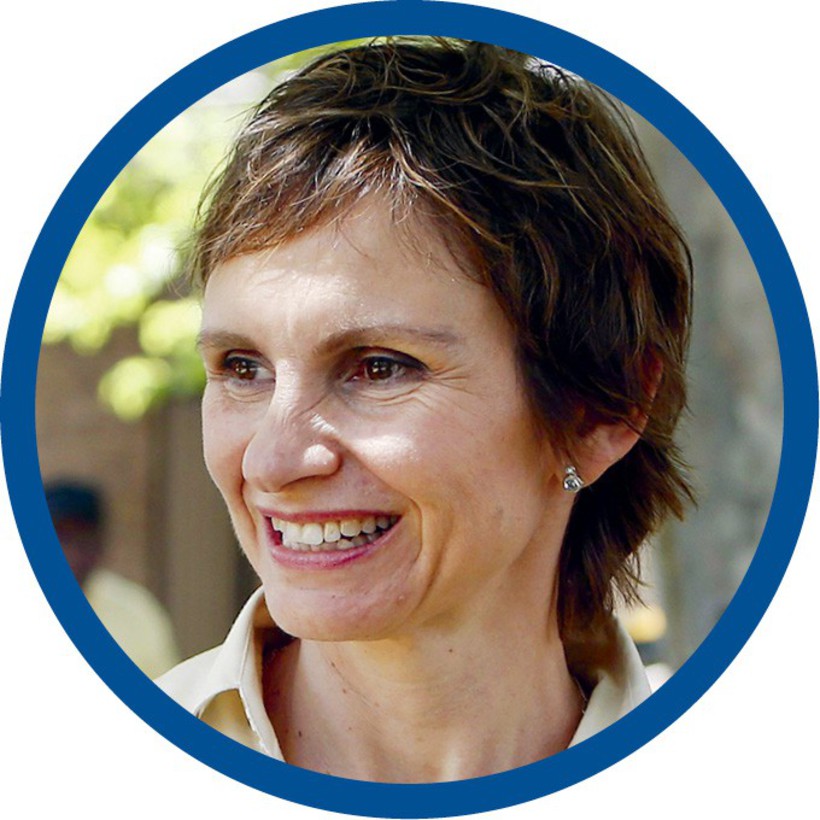
Carolina Tohá
Santiago
A Politician and the Daughter of a Politician
Santiago mayor Carolina Montserrat Tohá Morales, or just Carolina Tohá, turns 50 this year. But before reaching this milestone, she has already managed to build a spectacular political career for herself.
Granted, Ms Tohá did not have to start from scratch. Her father, Jose Tohá, was a prominent socialist and held the office of Vice President and Minister of the Interior in Salvador Allende’s government, which later fell victim to a coup d’état headed up by Augusto Pinochet in 1974. That is why, at the age of 19 in 1984, Carolina made her debut as one of the founders of the Student Federation at the University of Chile. As early as 1987, she was one of the founders of the Party for Democracy, which gained greater prominence on the Chilean political arena in the 1990s. In 1999, Ms. Tohá took over as the party’s Vice President, and in this capacity supported Ricardo Lagos as a presidential candidate. Lagos went on to win the election and two years later Carolina Tohá was elected as a Member of Parliament. As an MP, she tackled poverty and headed up a special commission tasked to combat this problem. Her career reached its peak when she was appointed the General Secretariat Minister of the Chilean government.
She was elected as mayor of Santiago in October 2012. Despite the city’s explosive development, she is often criticized by local residents for her unpopular decisions. For instance, during a public holiday in September 2014, she ordered that a fence be built around the central bar district of O’Higgins Park and that an entrance fee be charged. While these measures were initially met with public discontent, they eventually proved popular and made people feel safer during the festivities. Another wave of protests occurred when police forcefully shut down a flea market in the city center in November 2014. The mayor decided that it was obstructing traffic, even though the street vendors had been traditionally allowed to sell trinkets there one weekend a month.
I will be a mayor for all. Everyone will be listened to; no one will be excluded


